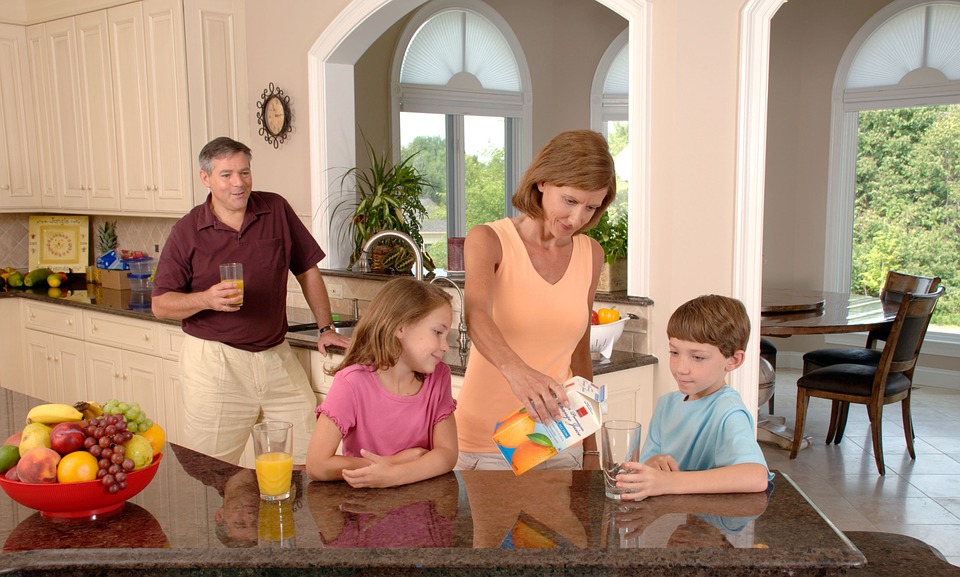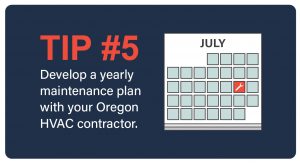 Are you a first-time homeowner in the Portland metro area? If so, HVAC systems might be unfamiliar to you. Want to learn HVAC equipment basics and maintenance tips from top experts? Our local HVAC company shares heating and cooling fundamentals below.
Are you a first-time homeowner in the Portland metro area? If so, HVAC systems might be unfamiliar to you. Want to learn HVAC equipment basics and maintenance tips from top experts? Our local HVAC company shares heating and cooling fundamentals below.
HVAC Tips for Beginners
What is an HVAC system? HVAC stands for “heating, ventilation, and air conditioning.” As the name suggests, HVAC units are responsible for all your residential heating and air conditioning needs. While HVAC systems are complex machines with many intricate parts, there are nine main components you should be familiar with. Keep in mind not all HVAC units are alike, so consult your professional HVAC contractor with any questions.
9 Basic HVAC Components
1) Furnace
Your furnace is designed to heat air and push it through your duct system to properly warm up your home. Furnaces can run off of electricity or natural gas, come in single-stage or two-stage options, and are often installed in your garage, basement or utility closet.
2) Heat Exchanger
The heat exchanger is not technically part of your furnace, although it is often located inside of your furnace. The furnace is responsible for moving hot air into your ducts, but the heat exchanger converts cold air to warm air via the combustion chamber.
3) Evaporator Coil
Also located inside of your home furnace, the evaporator coil helps to cool your indoor air. Refrigerant circulates through the coil, which allows the evaporator coil to absorb heat from the incoming air. The chilled air then blows through the ducts to help cool your residence.
4) Condensing Unit
The condensing unit serves a similar function as the evaporator coil; however, the condensing unit is typically located outside your home and gives off heat.
5) Refrigerant Tubes
Refrigerant tubes connect the evaporator coil to the condensing unit. They are usually made of metal, contain refrigerant, and join the indoor and outdoor units.
6) Thermostat
Thermostats allow you to control the internal temperature of your home. Typically mounted on the walls of a home, they can be located throughout your residence. You can find manual, programmable, and smart options. Programmable thermostats can often help save energy costs.
7) Ductwork
Ductwork allows warm or cool air to be distributed throughout your home via air ducts. Hot or cool air is pulled into your HVAC system, where it is conditioned, then pushed back out to maintain ideal indoor temperatures. Ducts can be located in attics and in the ceiling spaces.
8) Vents
As conditioned air moves through the ducts, it enters rooms in your home through air vents.
9) Heat Pump
A residential heat pump provides both heating and cooling. During colder months, the heat pump transfers cold air from the inside to the outside. In the warmer months, it does the exact opposite.
5 HVAC Tips for Portland Homeowners
1) Know Your HVAC System
As an Oregon homeowner, you need to know what type of HVAC system you have. This will help you troubleshoot potential problems and plan your routine maintenance schedule.
The most common system is known as the central air conditioning system and includes all the components listed above. Some homes, however, could have ductless systems. It’s also a good idea to know if your home uses a gas or electric furnace, or a boiler system.
2) Don’t Close Your Vents
Keeping air vents open allows for proper air distribution throughout your home. Closed vents force your HVAC system to work harder and less efficiently.
3) Inspect and Clean Your Ductwork
As a new homeowner, it’s important to have your ducts inspected and cleaned by a professional. Dirty and clogged ducts can contribute to poor indoor air quality and increase energy costs.
4) Replace Your Air Filter
One of the first maintenance steps you can take in your new home is to replace the air filter. Choose one that fits the best needs for your residence. Plan to replace your air filter every three months.
5) Develop an HVAC Maintenance Schedule
 Upon moving into your new home, contact your Oregon HVAC contractor and schedule a maintenance visit. Once all issues have been addressed, develop a yearly maintenance plan with your contractor. Taking care of your HVAC system will keep your unit performing its best and can save you on energy costs.
Upon moving into your new home, contact your Oregon HVAC contractor and schedule a maintenance visit. Once all issues have been addressed, develop a yearly maintenance plan with your contractor. Taking care of your HVAC system will keep your unit performing its best and can save you on energy costs.
Residential HVAC Services for Your Portland Home
If you are new to HVAC systems and need expert advice, AAA Heating and Cooling is here to help. Whether you are looking to schedule a routine visit or have an issue that requires immediate attention, our trained technicians can get the job done. Contact us today and let us assist you with all your HVAC needs.